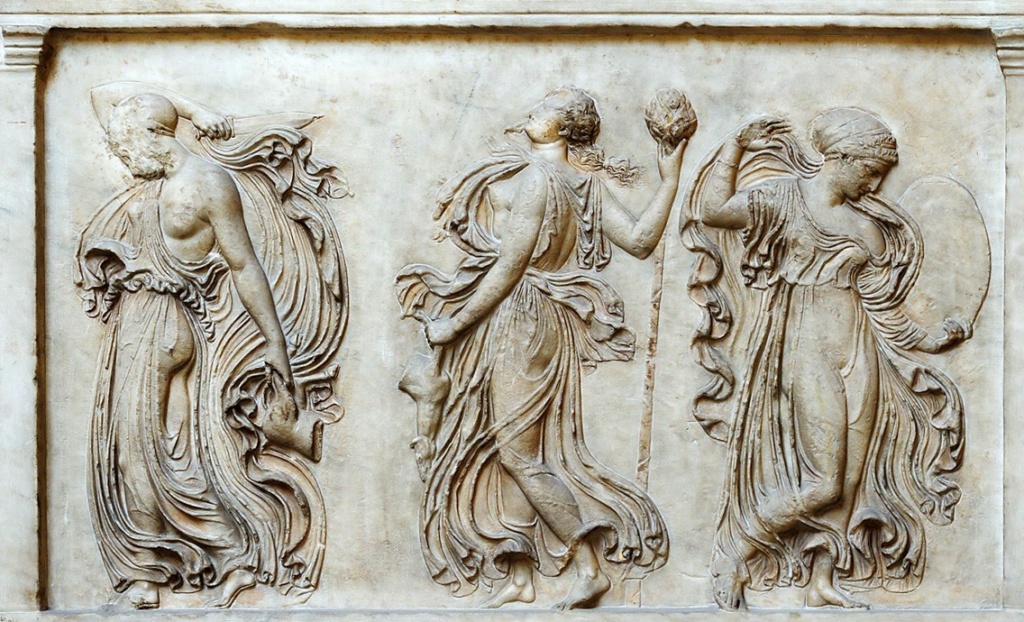
THE REIGN OF HYSTERIA
As in my last piece, I am interested these days in mechanistic explanations for what many on the Right perceive as our abject civilizational decline.
The general theme on the Deep Right, which I do not disagree with, is that of cyclical decline, loss of old mores, the shattering of all beautiful things, and the ultimate demise of both God and the Muses. I believe this all to be correct. But I find it interesting to analyze some of the morphology of this depressing phenomenon and identify its enablers and catalyzers and perhaps ways by which to slow it down.
Peter Thiel, as I previously discussed, believes that economic and scientific stagnation are great catalysts of cultural decline, the rise of Wokery, and the uselessness of our universities. His explanation does not negate the general theme and root causes of decline but identifies an element greatly contributing to it. In this piece, I wish to examine another contributor – the phenomenon of hysteria.
If we zoom out and examine the public nature of our politics – of public discourse, and of the relationship between government, the media, and the public – we’ll notice that the main feature is hysteria. Each element in our political system either generates hysteria, participates in it, or directs it.
First, let’s define the term itself. It’s a bit funny, actually. Hysteria comes from the Greek hystera, meaning womb. The ancients noticed a kind of frenzy often associated with screaming women and believed it to be related to issues involving the womb. For a long time, hysteria was treated as a disease like any other – a kind of neurosis or temporary craze that like all diseases should be offered treatment. Since it was a diagnosis reserved for women, the treatment often involved… fingering.

Anyhow, nowadays we have more precise terms for various forms of mental illness, whether useful or not I know not. This book, for instance, argues that psychiatry is by and large a pseudoscience. But regardless, the term hysteria has transcended its clinical origins and has come to designate a state of frenzy, irrationality, and overly intense emotions.
I previously described some of these psychotic episodes of public hysteria and their seeming ever-increasing frequency. I called it “Crisis Nation.” Quoting myself:
And so the revolutionaries of the Left are masters in catastrophizing. There is nothing new about this: The Jacobins used the permanent crisis of the ever-present, yet never seen, émigrés to justify the transfer of all power to the Committee for Public Safety. With it, they gained complete control over the French state.
For the Soviets, a juicy crisis always chased another. Initially, the kulaks, then “rootless cosmopolitans, and always the omnipresent treachery of West.
The Maoists, especially during China’s Cultural Revolution, exploited China’s absolute destitution as a wonderful opportunity to persecute political enemies (traitors to the revolution) and take over the machine of the Chinese state.
This type of dynamic is wonderfully documented in Orwell’s Animal Farm. Every failure of the ruling porcine class is made into a catastrophe of treason, external threats, and absolute urgency. Every such catastrophe, in turn, serves to increase the hold of the hooven lords over the farm’s society.
Now, a qualifier. As much as I detest the Jacobins, the Soviets, and the Maoists, at least they had real crises to manipulate and exaggerate: Revolutionary France was indeed in a state of war, Soviet Russia was indeed dirt poor, and Maoist China was a complete basketcase of dysfunction. By contrast, America is a prosperous and relatively tranquil society. So the American Left has no choice but to invent a good crisis. They are pretty good at it.
By now, the spring of 2023, American adults have seen at least four recent cycles of mass hysteria – the bizarre “resistance” to the election of Donald Trump with luminaries such as Madonna making threats to blow up the White House, the Russia Collusion thing we could never hear enough about, followed by Covid hysteria which was then merged with George Floyd hysteria within which we are sort of still living.
Trying to debate those struck by hysteria is a completely futile exercise. As described by Mattias Desmet, they transfer their cognitive functions and moral reasoning onto the collective, or the Big Idea, and are basically drones moved by class alignment, concerns for status within the collective’s hierarchy, and much loathing towards any who dare challenge their state of hypnosis and groupthink.
Witnessing the cognitive state of hysterics one cannot but imagine William Defoe (he of Robinson Crusoe), as he was commenting on the restive England of his day, ever fearing a Jacobite invasion: “there were a hundred thousand country fellows ready to fight to the death against popery, without knowing whether popery was a man or a horse.”

This is experienced worldwide – Covid was obviously a global hysteria, but then George Floyd also detonated bizarre feats of Wokery in places like England and Sweden, despite not having much of an African population at all. In Britain, as in Canada, the Wokeratti have to be rather creative and go back to the various tales and monuments of their Victorian great-great-grandfathers.
In any case, imagine we somehow limited that. Meaning, imagine we had a way to burst these bubbles of public hysteria or prevent them from inflating so quickly and radically, to begin with. We would arrest, I think, much of our perceived decline in the same manner that unleashing economic growth would do so.
Can it be done? It’s worth trying to analyze what enables these feats of hysteria. I am examining such a process in the making now in Israel, where a hundred thousand ex-Bolsheviks all fear for “democracy” without knowing whether it be a horse or a man. Yes, there is a group of NGOs and aspirant political actors who take a central part in the hysteria, but for the most part, it is a self-reinforcing thing. A cognitive loop by which one watches a lot of television, speaks to friends who also watch lots of TV, yells at neighbors who do not think alike (yet), then goes back to watch lots of TV (“wow, it’s exactly what I think too!”), speaks to friends and this time goes to participate in protests, yelling against whomever they protest against, more TV, etc.
So one way to minimize these things is to make sure nobody has any neighbors or friends. We’re sort of getting there. Another, more appealing, is to take away everybody’s TV sets. Now, I mean this figuratively but tossing the whole thing out of the window works as well. It would much behoove sane people to come up with ways to critically minimize the role of mass media in our lives. Forget about old-fashioned notions, much subverted now, of “freedom of the press.” We should expect officials to defund NPR, never leak to CNN, eject the NYT from the press corps, etc., etc.
Why do right-wing governments allow so many leaks that keep the left-wing hysteria-whipping media alive? Any time a “source” provides a scoop (meaning, a leak), a left-wing organ of the press gains prestige. Why not enforce lie detectors and media silence? Governing requires intent and freedom from the shackles of inertia set by one’s rivals.
Cut the media, and the elites are left like a Roman emperor betrayed by the Praetorian Guard – frantically pacing to and fro in the empty halls of the palace.
We should also, especially the young among us, make watching television (or its smartphone equivalents) not cool. “Netflix Karen, CNN Neil, LOL!” “What? You get your news from the Post? Ha ha!” I’m not sure exactly how to do it, but the system of mass hysteria, as well as the system of prestige, could be hacked to act against itself. Influencers and whatnot should begin making the consumption of mass media uncool.
So let me begin by setting an example – recently, at the dog park, I mocked an overly opinionated, nasally-voiced, neighbor for consuming CNN with the same mindless passion by which an eager male prostitute consumes fellatio. Follow in my crass footsteps!
Follow us on Twitter!
And sign up for updates here!